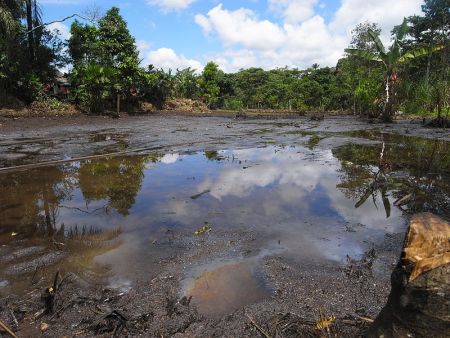 According to the Union of Concerned Scientists (UCS), a Climate of Corporate Control, statements and actions on climate science and policy by 28 U.S. companies, shows how these contributions can be problematic, and suggests steps that Congress, the public, the media, and companies themselves can take to address the problem. Corporations have the right, of course, to weigh in on public policy issues that affect their interests. But too often they do so irresponsibly, misrepresenting and misusing science at the public’s expense, and in recent years their influence has grown.
According to the Union of Concerned Scientists (UCS), a Climate of Corporate Control, statements and actions on climate science and policy by 28 U.S. companies, shows how these contributions can be problematic, and suggests steps that Congress, the public, the media, and companies themselves can take to address the problem. Corporations have the right, of course, to weigh in on public policy issues that affect their interests. But too often they do so irresponsibly, misrepresenting and misusing science at the public’s expense, and in recent years their influence has grown.
Corporations skew the national dialogue on climate policy in a variety of ways—making inconsistent statements across different venues, attacking science through industry-supported organizations, and taking advantage of the secrecy allowed them by current legal and regulatory structures.
Inconsistency: Having It Both Ways–Some corporations are contradictory in their actions, expressing concern about the threat of climate change in some venues—such as company websites, Security and Exchange Commission (SEC) filings, annual reports, or statements to Congress—while working to weaken policy responses to climate change in others. For example, ConocoPhillips has acknowledged on its website that “human activity…is contributing to increased concentrations of greenhouse gases in the atmosphere that can lead to adverse changes in global climate.” Yet in its comments on the 2009 EPA Endangerment Finding, the company claimed that “the support for the effects of climate change on public health and welfare is limited and is typified by a high degree of uncertainty.”
Using Outside Organizations: Contrarians By Proxy–One way a company can work against effective climate policy while avoiding accountability for that work is to provide funding to outside groups that lobby against climate legislation and regulation or engage in advocacy campaigns against climate science. Such groups range from business associations such as the National Association of Manufacturers to front groups like the Heartland Institute.
Echoing the inconsistency in their other statements and actions on the issue, many companies belong to groups lobbying on both sides of the climate policy debate. For example, Caterpillar is affiliated both with the World Resources Institute and Nature Conservancy, which advocate global warming solutions, and with the Cato Institute and Heritage Foundation, which oppose them. Of course, corporations may point out that the organizations they support work on many issues besides climate—but the fact remains that many of these groups take starkly anti-science positions on climate change and work aggressively to challenge science-based climate policies.
A Lack of Transparency–When business interests can hide their influence on policy-making processes from public view, it becomes easier for them to manipulate perceptions of science and skew policy discussions. There are several areas in which greater transparency is needed: Charitable contributions. Current law only requires corporate foundations to disclose their donations to the IRS; companies can get around this requirement by making their donations directly, bypassing their foundations. This information is also hidden from shareholders: several corporations have received proposals from their shareholders demanding access to the company’s charitable contributions, and legislation to require such disclosure has been proposed in Congress. Lobbying and political expenditures. While companies are legally required to report their total expenditures on political contributions and lobbying, they are not required to disclose the particular issues for which these contributions are targeted. So it is not possible to determine how much lobbying corporations are doing on climate issues. Business risks from climate change. Publicly traded companies are required to discuss risks that might materially affect their business in their annual SEC filings. The report shows that compliance with this requirement with regard to climate change is not consistent; some companies address climate-related risks fully, some discuss only the possible impacts of climate regulation, neglecting the physical impacts of climate change, and others ignore the issue entirely.
Good and Bad Behavior–It’s not all bad news out there: The report shows that some companies, such as NIKE, appear to be consistently constructive in their climate-related statements and actions. At the other extreme, some companies appear to be almost uniformly obstructionist on climate issues. This list is dominated by fossil-fuel companies such as Peabody Energy and Marathon Oil. But because of the lack of disclosure, it is impossible to say for sure whether companies are completely constructive or obstructionist. Inappropriate corporate influence on the national dialogue on climate science and policy is a large-scale, complex problem requiring large-scale, complex solutions.
Excerpt from A Climate of Corporate Control



